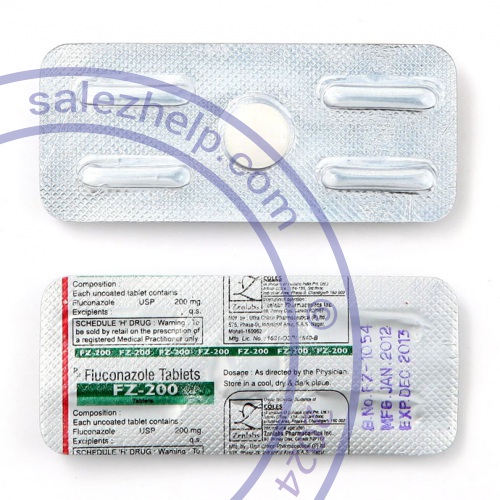Diflucan Singapore
Diflucan, also known as fluconazole, is an antifungal medication primarily used to treat and prevent various fungal infections. These might include infections like yeast infections, thrush, ringworm, athlete’s foot, and certain types of meningitis. It works by stopping the growth and reproduction of fungus in the body. Common side effects can include nausea, diarrhea, dizziness, and changes in taste, but you should seek medical attention if severe reactions occur. As with all medications, it should be taken as directed by a healthcare professional.
- 50mg
- 100mg
- 150mg
- 200mg
- 400mg
What is Diflucan and its primary uses?
Diflucan, also known as fluconazole, is an antifungal medication. It's primarily used to prevent and treat numerous types of fungal infections, including yeast infections, thrush, ringworm, athlete's foot, and certain types of meningitis. It works by inhibiting the growth and reproduction of fungal cells.
How to properly take Diflucan?
Diflucan can be taken either orally or intravenously. The route, dosage, and length of treatment depends on the patient's medical condition and response to therapy. It's recommended to take this medicine at the same time daily for better results. Always follow your doctor's advice about how and when to take this medicine.
What are the possible side effects of Diflucan?
Common side effects may include nausea, vomiting, diarrhea, stomach pain, dizziness, and changes in taste. If these persist or worsen, consult with your healthcare professional immediately. More severe reactions, although rare, may include liver disease, irregular heartbeat, severe dizziness, fainting, loss of appetite, or yellowing of skin and eyes.
Can I take Diflucan while pregnant or breastfeeding?
Use of Diflucan during pregnancy is only recommended when the benefits outweigh the risks, as high-dose fluconazole use has been associated with birth defects. For breastfeeding mothers, consult your healthcare provider as fluconazole passes into breast milk.
Are there any drug interactions with Diflucan?
Diflucan may interact with other drugs including some sedatives, anticoagulants, antidiabetic drugs and certain antibiotics. Always inform your healthcare provider about the drugs you're using before starting the course of Diflucan.
What happens if I miss a dose or take an overdose of Diflucan?
If you miss a dose, take it as soon as you remember, but do not double up the dose to catch up. In case of an overdose, seek immediate emergency medical help. Symptoms may include hallucinations and paranoid behavior.
Can I drink alcohol while taking Diflucan?
Alcohol is not recommended to mix with Diflucan, as it can increase the risk of experiencing serious side effects, such as liver problems and changes in heart rhythm.
Can I use Diflucan in paediatric and geriatric patients?
Before administering Diflucan in children, consult a paediatrician because the dosage varies depending on the child's weight. For elderly patients, dose adjustment may be required due to potential kidney function decline associated with age.
Do I need a prescription to buy Diflucan?
Yes, Diflucan is a prescription medicine. It's crucial to have a doctor's consultation before taking it to prevent misuse or overuse, which can lead to resistance or severe health problems.
Always remember, every medication carries a risk of side effects and drug interactions. Patients should take it upon themselves to discuss any concerns with their healthcare provider, ensuring they use their medications safely and effectively.



